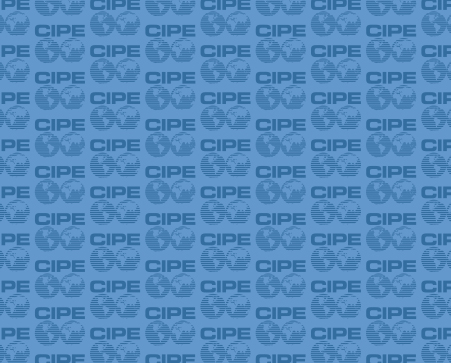
Dan Fisk is Vice President for Policy and Strategic Planning at the International Republican Institute (IRI).
The 2011 presidential and legislative elections in Liberia will mark another milestone in that country’s post-conflict evolution. The progress that has been made since President Ellen Johnson Sirleaf’s election in 2005 is noteworthy. Her tenure has given the country needed stability while her compelling story, including being the first democratically-elected woman president in Africa, and active outreach have kept international attention on Liberia.
While the 2011 elections are a necessary step in Liberia’s continuing reconstruction and reconciliation, many challenges will remain regardless of the electoral outcome. The scars of the conflict remain present in Liberians’ daily lives and attitudes, including a deep distrust of government. As one international official told an IRI assessment team, every day brings more calm to the country but it remains a society suffering from a form of post-traumatic stress syndrome.
Corruption is prevalent and has a very complex and long-standing acceptance by many in that society. There are instances of legislators expecting to benefit financially from their congressional votes and of executive branch officials seeking to use their offices for personal monetary gain. President Sirleaf has been vocal in her support of anti-corruption initiatives, which includes the creation of both an Anti-Corruption Commission and an independent Auditor General’s office. Civil society monitoring organizations also have been established and are active in Monrovia. Despite these commendable efforts, the system still has a pay-to-play element to it.
A further complication is the significant rate of illiteracy and the small cohort of qualified individuals available to form the core of today’s entering civil service. One consequence of the country’s civil conflict was to leave at least a generation with minimal, if any, education. While schools have been rebuilt and enrollment has increased, reestablishing an education system takes time. Moreover, too many Liberians don’t pay enough attention to building capacity – for the moment, they are relying on the international community to deliver many basic services (such as health care) and seem, generally, content to let that remain the case.
To address human capital needs in the short-term, President Sirleaf has made an effort to fill critical positions by recruiting from the Liberian diaspora. A number of individuals who earlier fled due to violence have returned to contribute, at least for a limited time. A longer-term solution remains a challenge.
While the country continues to rebuild its economy, civil society, and core national governmental institutions, another element of Liberia’s democratic re-emergence is a decentralization initiative to strengthen sub-national governmental institutions and increase citizen participation at the local level.
Historically, local governmental structures have been weak with the chief local executive officer being a presidential appointee whose loyalty, project approval chain, and reporting responsibilities have been tied to the national leadership. This individual has been more often representative of Monrovia than of the locale which he/she administers.
Decentralization, if handled properly and accompanied by resources, could have a significant impact on the average citizen’s confidence in governmental institutions. Under the umbrella of the Governance Commission, Liberia is adopting a process that will devolve power from the central authority to the county (state equivalent) and local governments. There is ample room for international support to help Liberia strengthen this decentralization process. Special attention should be given to local governance and local civil society structures. This will be all the more useful as the process will be without precedent and will occur in the context of insufficient capacity among state and local government officials, a lack of governance standards at sub-government levels, weak participatory mechanisms for decision-making as well as weak or absent mechanisms for transparency and accountability.
While several internationally-funded governance projects are underway, they have largely been focused on technical aspects such as installing procurement and accounting processes, office set-up and equipment, and capacity-building as related to financial and administrative issues. These are worthwhile efforts, but there is more to building capacity than technical processes.
Liberia also needs assistance in providing individuals with the skills and incentives to deliver government services transparently and determine citizen priorities between election cycles. And within civil society, there is a need for the skills and mechanisms to monitor government activities and responsibly demand accountability from governmental structures. Fulfilling these needs offers international donor and development organizations, which fund an array of initiatives throughout the country, an opportunity to further make a long-term and fundamental impact on Liberia’s future as a peaceful, democratic country.
Published Date: October 26, 2010